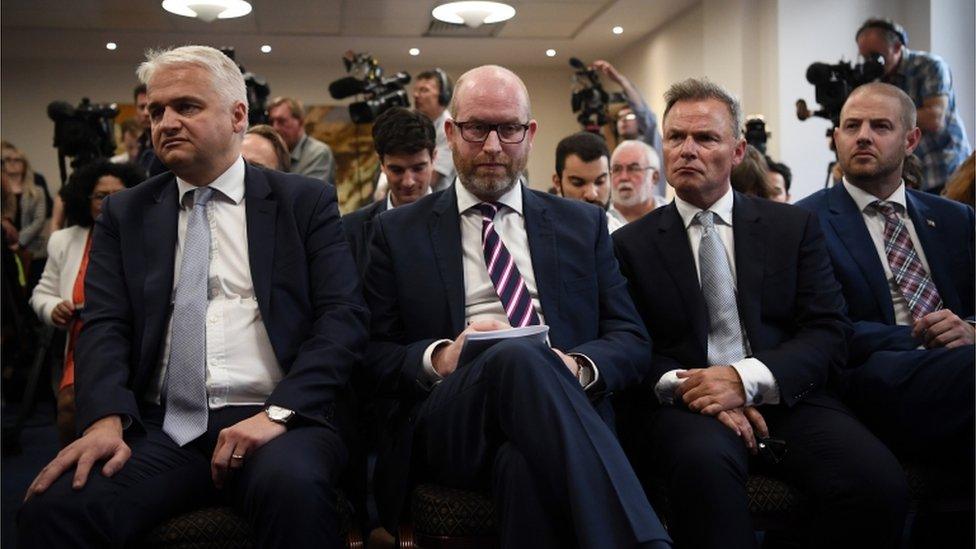UKIP's new focus on tackling extremism
- Published

UKIP's manifesto launch came as some low-key campaigning by other parties restarts after the Manchester attack.
The election is back. But the events in Manchester have changed the canvas for now.
Nowhere more so than at UKIP's manifesto launch on Thursday where UKIP's leader, Paul Nuttall, and Suzanne Evans, who prepared the party's programme, both slammed Theresa May's record as home secretary, suggesting she and other politicians bear some of the responsibility for the attack, by creating circumstances where they claim, extremism has been allowed to flourish.
In blunt terms, Mr Nuttall said "lighting candles is not enough" - vowing that UKIP would introduce thousands of new military personnel, police and border guards.
When asked by journalists if he was trying to exploit current events, he denied it. Party members even heckled and jeered journalists for asking them the question.
But if you turn down the noise and smooth off the sharpness of the language, what is the point that UKIP is really trying to make?
Since the EU referendum, UKIP's support has been melting away. Their performance at the local elections was dire. There's been internal chaos since former leader Nigel Farage stood down.
And Mr Nuttall's performance in the Stoke by-election suggested their supporters would be waiting a long time for any kind of political breakthrough.
But this morning, perhaps, we saw UKIP find its new focus.
The leader said this morning that, from the moment he took over, he had wanted to make integration and tackling Islamic extremism some of his priorities. But it's clear that the Manchester attacks have focused UKIP minds.
The party is proud of its status as a party on the edge, the outliers who are willing to say the unsayable, not to be afraid of causing offence.
And they believe that sharp approach has, in the end, shifted the political consensus and public opinion.
Starting with hardening attitudes to immigration, then hardening attitudes to the EU, they hope now their toughened-up stance on extremism can do the same.
In the search for relevance they may hope they have found a new argument to make. But many voters might find the party's behaviour this morning inappropriate and out of touch.
If people are turned off and no longer are willing to listen to UKIP, it may not matter much what they say.